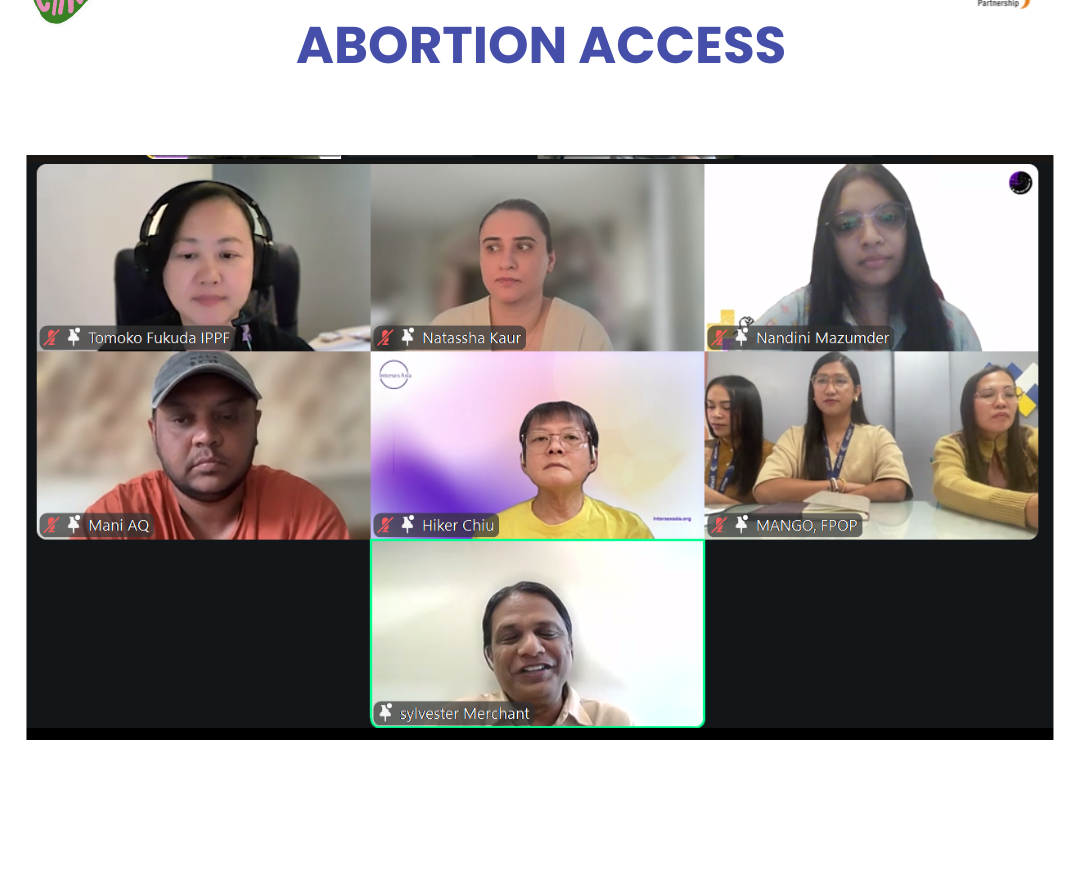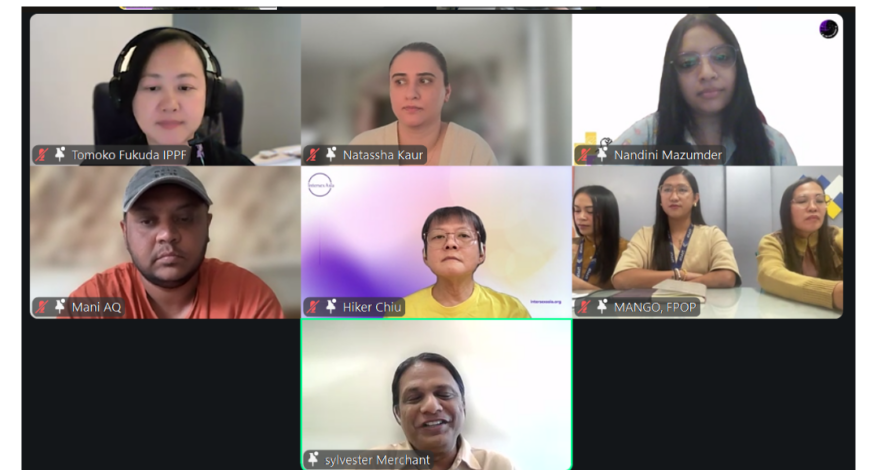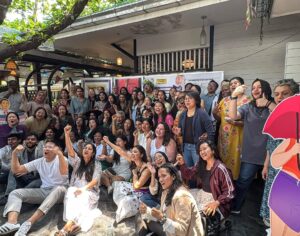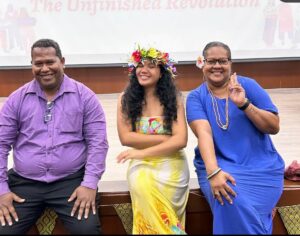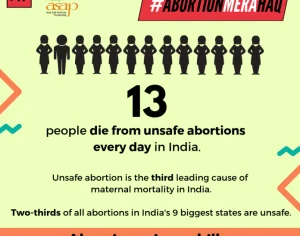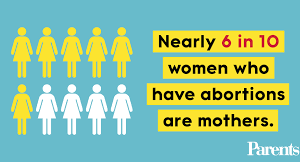Queering Safe Abortions!
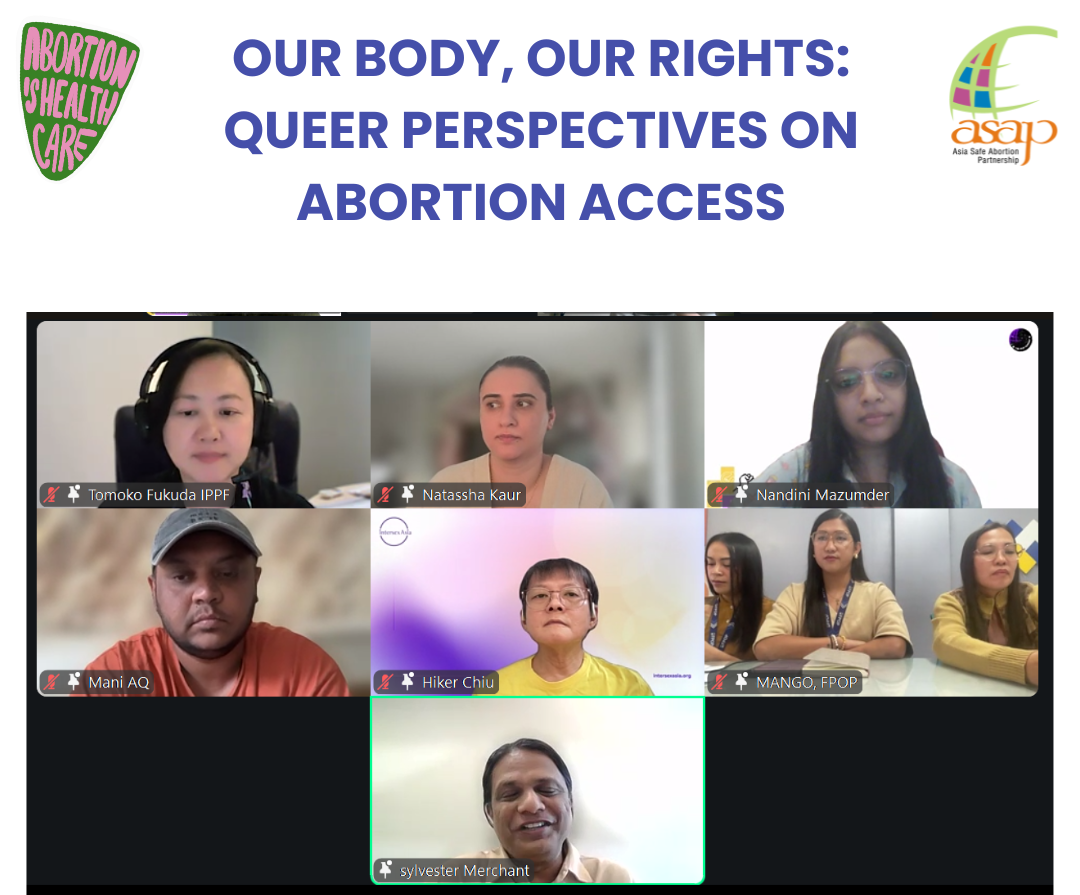
Our recent webinar on Our Bodies Our Rights: Queer Perspectives on Safe Abortion was not just a powerful discussion, it became a space for honesty, solidarity, and rethinking what safety really means. People spoke openly about what safe abortion truly looks like when we include queer, trans, and intersex realities.
The speakers and participants started by pushing back against the usual idea that “safe abortion” simply means a procedure done without medical complications. They reminded us that for many people, even if the abortion is medically safe, it can still feel unsafe when they are misgendered, judged, or shamed. True safety, has to mean dignity, autonomy, emotional care, and respect for the whole person.
Through this space we wanted to emphasize that abortion is not only a women’s issue but an LGBTQI issue, because people of all genders, including trans men, non-binary, and intersex people, can experience pregnancy and need abortion care. The highlight of the conversation was how it wasn’t just about presenting expertise, but more about sharing lived experiences.
Mani AQ from Pakistan shared “For many trans people, safety doesn’t stop at surviving the procedure, it’s about being treated with respect and seen for who we are. Until systems change, safety will remain incomplete.” Sylvester Merchant from India reminded us, “We can’t keep talking about abortion as only a women’s issue. Queer, trans, and intersex people exist and we deserve care that doesn’t erase us.”
Hiker from Taiwan added, “Even if an abortion is medically safe, it may not be safe for an intersex person. Safety means bodily autonomy, the freedom to make decisions without fear, shame, or coercion.” Amber from the Philippines shared, “For a trans man, a technically ‘safe’ abortion can still mean being misgendered and humiliated. That’s not safety, that’s symbolic violence. Care has to start with respect.”
One of the participants, Saint Asli from the Caribbean brought up an important point in the chat, “Queerness is often a class issue. Most queer and trans people can’t afford private care. Public systems must be sensitized because queer SRHR isn’t a favour, it’s an obligation.”
Joie from the Philippines reminded everyone that “Feminist abortion care in the Global South means decolonizing health. Our local, indigenous knowledge matters and it’s been keeping communities alive long before formal systems arrived.” And finally, Nikos Dacanay shared, “Reproduction is never just biological, it’s shaped by borders, power, and inequality. Safety isn’t one thing; it’s layered, political, and always relational.”
Throughout the discussion the chat box was alive with energy and emotion, a lot of gratitude, emojis, and appreciation. People spoke about how refreshing it was to see queer and intersex voices at the center of the discussion. One participant said, “This has been a very rich conversation. Thank you for the space, everyone!”
The discussion also brought forward important questions, about how queerness is tied to class, how public health systems often fail queer people, and how even feminist spaces need to confront their own biases. As someone said beautifully, “A feminism that isn’t inclusive isn’t feminism at all.” There were also powerful calls to decolonize our understanding of abortion and to value local and indigenous knowledge rather than just models from the Global North.
What made the webinar special was not just the insights from the speakers but the genuine connections that were built. People didn’t just listen, they reached out to each other.
However we must remember that this shouldnt be a one-time conversation, but the start of a journey. We would love to invite you all as well to continue engaging with us, through the upcoming Gazette issue on Queering Safe Abortion (with Sylvester as guest editor and Mani as contributor), through Sylvie’s upcoming module on LGBTQIA+ rights and SRHR on the ASAP Academy, and through some other events we have planned, as part of our larger Building Inclusive Movements initiative.
So stay tuned, because we’re not ending the conversation; we’re building a movement. A movement that includes everyone, holds space for all bodies and all stories, and continues to imagine what real safety and care can look like when no one is left out.
By Ayesha Bashir, Communication and Network Officer, ASAP
